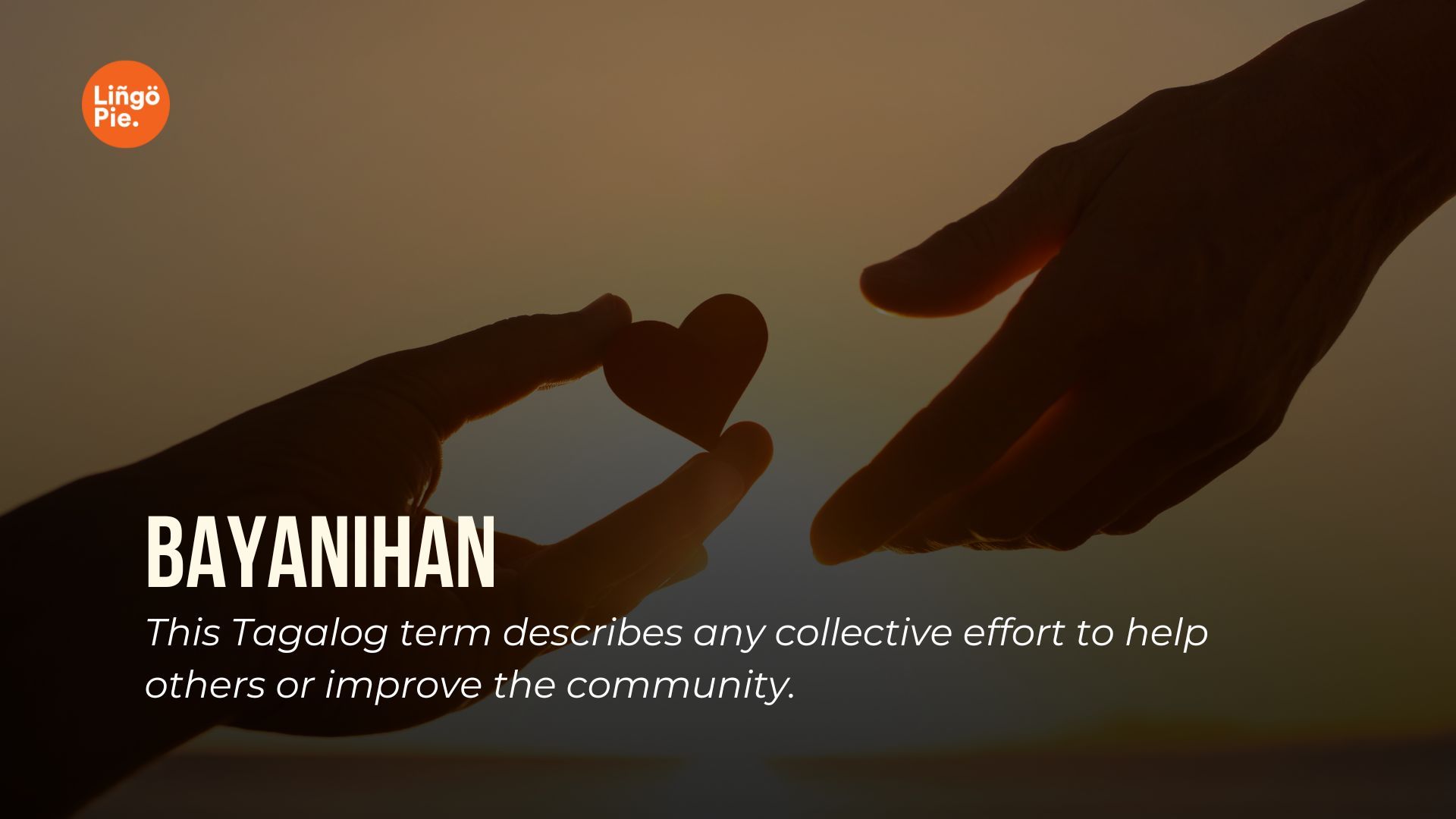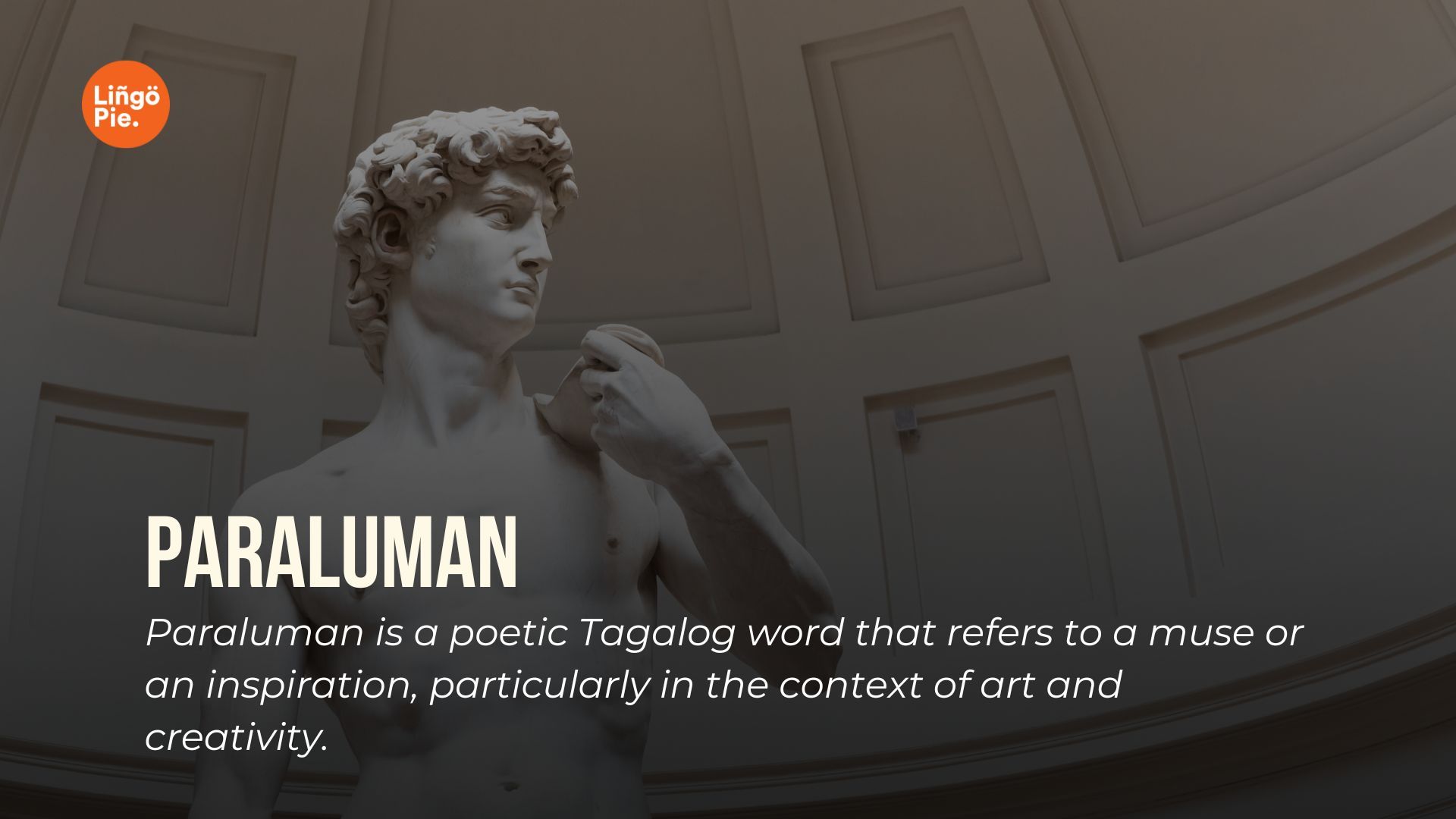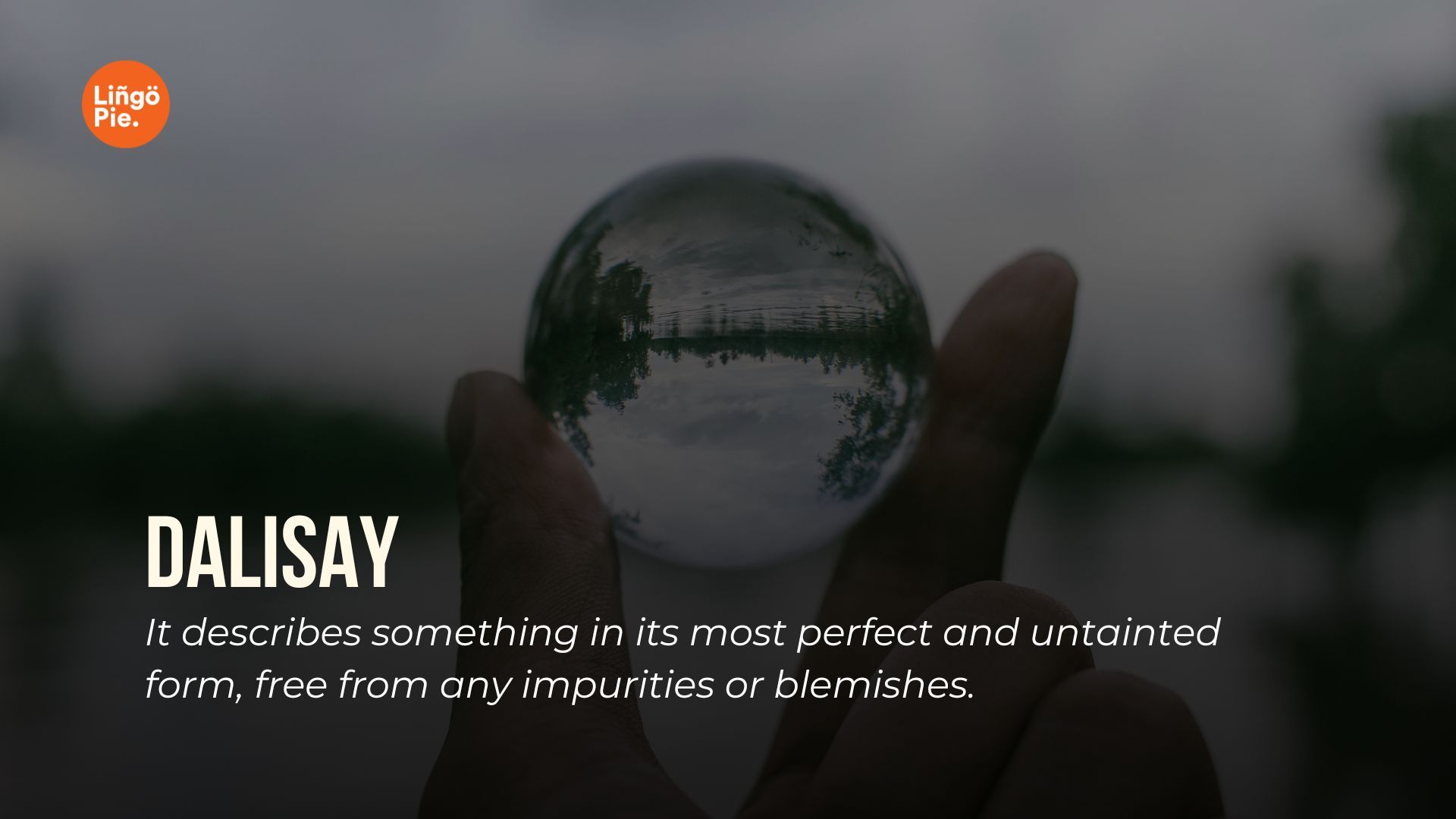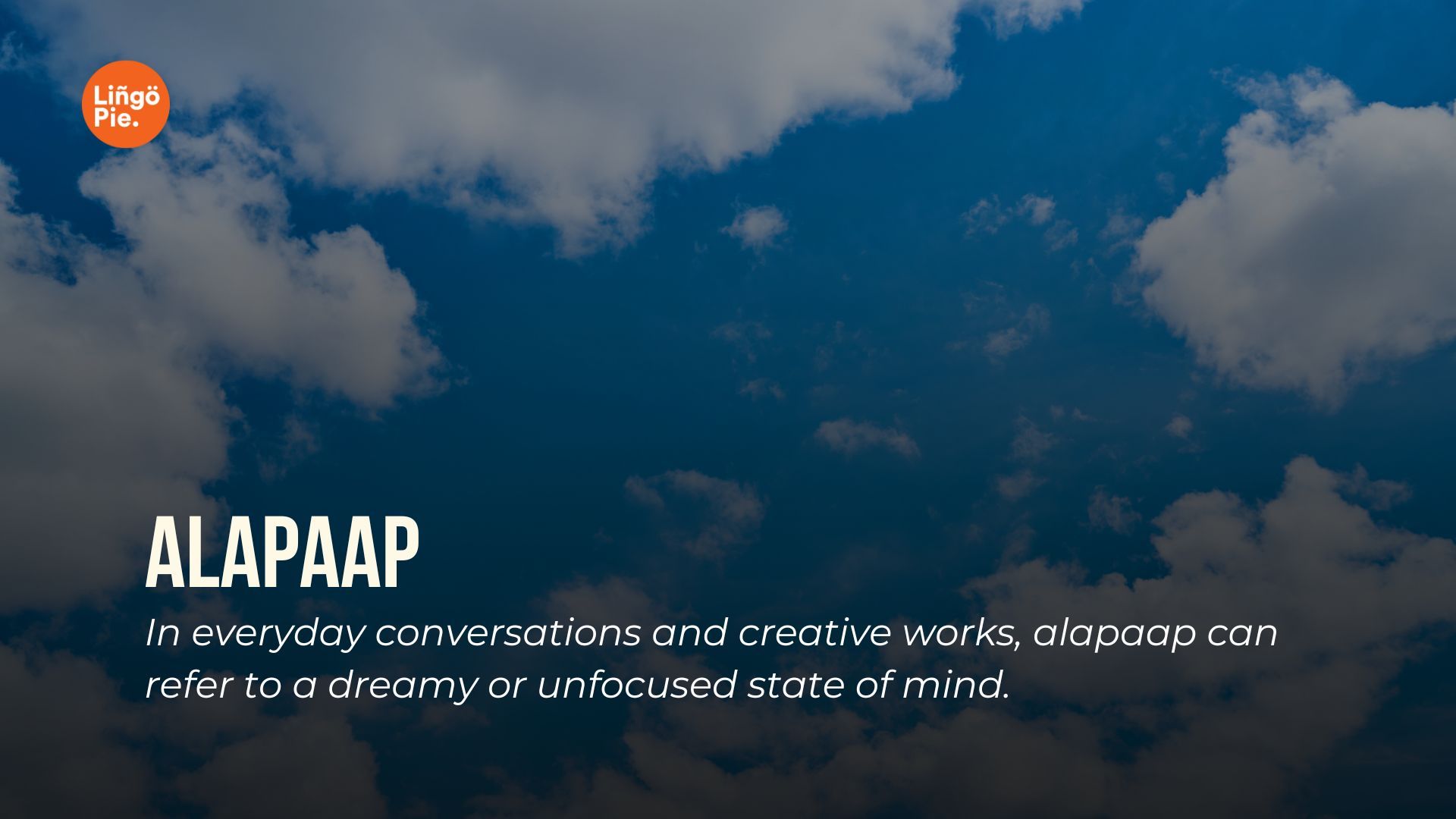Think you know Tagalog? Think again!
We're not just talking about your every day "salamat" or "kamusta ka." Nope, we're digging into the words that'll make you go "Wait, there's a word for that?" In this post, I'll share with you the best deep Tagalog words or poetic Filipino words to truly help you connect better with the locals.
And hey, if this taste of Tagalog leaves you hungry for more language adventures, don't worry! Stick around till the end, where I'll reveal our top-recommended language learning platform. It's perfect for those who want to go beyond Tagalog and explore other languages with the same depth we're about to dive into here.
- 10+ Best Ways To Say I Love You In French Like a Native Speaker
- 15+ Words and Phrases for Asking and Giving Directions in German
- 12 Zodiac Signs In Chinese: How To Talk About Your Sign

Poetic Tagalog Words
Ever watched an old Filipino movie and heard words that made you pause, rewind, and go, "Wow, that's beautiful"? Or maybe you've listened to a classic OPM song and wondered why the lyrics hit differently than everyday Tagalog? Well, you're not alone!
In this section, I'll cover useful poetic words in the Filipino language that carry a lot of weight. I'm going to break them down for you, show you how to use them, and maybe even inspire you to drop a poetic bomb in your next conversation.

Bayanihan
Bayanihan is a cornerstone of Filipino culture, embodying the spirit of communal unity and cooperation. Literally translated, it means "being a bayan (hero/community)," but its essence goes much deeper. It represents the Filipino value of coming together as a community to achieve a common goal, often in times of need or celebration.
Traditionally, bayanihan referred to the practice of neighbors helping a family move by literally carrying their house to a new location. Today, it's used more broadly to describe any collective effort to help others or improve the community.
Example sentence:
- "Nagbayanihan ang buong barangay para linisin ang ilog." (The whole village came together in the spirit of bayanihan to clean the river.)
Kundiman
Kundiman is a genre of traditional Filipino love songs that originated during the Spanish colonial period. More than just a musical style, kundiman embodies deep, passionate, and often unrequited love. These songs are characterized by their poetic lyrics, emotional depth, and subtle expressions of patriotism.
Example sentence:
- "Ang kundiman ni Maria ay nagpahayag ng kanyang matinding pagmamahal sa bayan." (Maria's kundiman expressed her intense love for the country.)

Harana
Harana is a traditional Filipino courtship custom where a man serenades the object of his affections, typically beneath her window at night. This romantic practice involves singing love songs, often accompanied by a guitar, as a way to express one's feelings and win the heart of a beloved.
Though less common in modern urban settings, harana remains a cherished part of Filipino culture, often depicted in movies, music, and literature as a symbol of traditional romance. The term can also be used more broadly to describe any act of musical wooing or expressing love through song.
Example sentence:
- "Si Juan ay nag-harana kay Maria sa ilalim ng kanyang bintana kagabi." (Juan serenaded Maria beneath her window last night.)
Sinta
Sinta is a deeply affectionate Tagalog term for a loved one, particularly a romantic partner. It's often used as a term of endearment, similar to "darling" or "beloved" in English. The word carries connotations of tenderness, intimacy, and cherished affection.
Example sentence:
- "Sinta, ikaw ang liwanag ng aking buhay." (My beloved, you are the light of my life.)

Paraluman
Paraluman is a poetic Tagalog word that refers to a muse or an inspiration, particularly in the context of art and creativity. Originally, it meant a compass or a guiding star, but its usage has evolved to describe a person who inspires artistic or creative work.
In Filipino literature and music, paraluman often represents an idealized woman who serves as a source of inspiration for the artist. The term carries connotations of beauty, grace, and the power to evoke profound emotions or creativity in others.
Example sentence:
- "Si Maria ang naging paraluman ng makata sa kanyang mga tula." (Maria became the muse of the poet in his verses.)
Tadahana
In Filipino culture, tadahana often comes up in discussions about love, success, or significant life events. It reflects a philosophical acceptance of life's twists and turns, implying that there's a greater plan at work beyond our immediate understanding.
Example sentence:
- "Ang pagkikita nila ay tadahana, hindi lang simpleng pagkakataon." (Their meeting was destined, not just a simple coincidence.)

Gunita
Gunita is a poetic Tagalog word that means memory or remembrance. It's more than just a recollection; gunita carries a sense of nostalgia and fondness for past experiences. This term is often used when referring to cherished memories or when reminiscing about significant moments in one's life.
Example sentence:
- "Ang mga gunita ng ating kabataan ay nagbibigay kulay sa kasalukuyan." (The memories of our youth bring color to the present.)
Hiraya Manawari
Hiraya Manawari is a profound Tagalog phrase that encapsulates the concept of aspirations and the heights of one's imagination. "Hiraya" refers to the fruit of one's hopes, wishes, or dreams, while "manawari" means "may it come to pass" or "may it be so."
Together, this phrase embodies the power of dreaming and the hope for these dreams to become reality. It's often used to encourage others to dream big and to hold onto their aspirations, no matter how lofty they may seem.
Example sentence:
- "Hiraya Manawari, balang araw ay magiging doktor ka rin." (May your dream come true, someday you will become a doctor.)

Dalisay
Dalisay is a beautiful Tagalog word that means pure, pristine, or unadulterated. It describes something in its most perfect and untainted form, free from any impurities or blemishes. This term can be applied to physical objects, but it's often used more abstractly to describe emotions, intentions, or characters.
Example sentence:
- "Ang kanyang pagmamahal ay dalisay at walang kondisyon." (His/Her love is pure and unconditional.)
Pahimakas
Pahimakas is a deeply emotional Tagalog word that refers to a final farewell or a last goodbye. It's more profound than a casual "paalam" (goodbye), as it carries the weight of finality and often implies a sense of tragedy or loss. This term is typically used in situations where there's a significant or permanent parting, such as death, or a life-changing separation.
Example sentence:
- "Bago siya pumanaw, nagbigay siya ng kanyang huling pahimakas sa kanyang pamilya." (Before he passed away, he gave his final farewell to his family.)

Alapaap
In everyday conversations and creative works, alapaap can refer to a dreamy or unfocused state of mind. It's sometimes used to describe someone who seems distracted or not fully present in reality. In a more poetic sense, it can also represent the realm of dreams and imagination.
Example sentence:
- "Nasa alapaap ang isip niya matapos basahin ang liham ng kanyang mahal." (His mind was in the clouds after reading the letter from his beloved.)
Banaag
Banaag is a poetic Tagalog word that refers to a faint light, a glimmer, or the first rays of dawn. It describes the subtle illumination that occurs just before full brightness, capturing that magical moment when darkness begins to give way to light.
Example sentence:
- "May banaag ng pag-asa sa kanyang mga mata kahit na mahirap ang sitwasyon." (There was a glimmer of hope in her eyes despite the difficult situation.)

Silakbo
Silakbo is a vivid Tagalog word that describes a sudden outburst of intense emotion, typically anger or passion. It refers to a moment when feelings bubble over and explode, often unexpectedly. This term captures the volatile nature of human emotions, particularly when they've been suppressed or build up over time.
Example sentence:
- "Ang silakbo ng kanyang galit ay nagulat sa lahat ng nasa silid." (The outburst of his anger surprised everyone in the room.)
Marahuyo
In Filipino culture, marahuyo is frequently used to express the feeling of being completely absorbed by someone's beauty, a stunning view, or an exceptional performance. It captures that moment when you're so impressed that you lose yourself in admiration.
Example sentence:
- "Namarahuyo ako sa ganda ng tanawin sa taas ng bundok." (I was captivated by the beauty of the view from the top of the mountain.)

Muni-muni
Muni-muni is a Tagalog term that refers to the act of deep contemplation or reflection. It describes a state of being lost in thought, often in a quiet, introspective manner. This word encompasses more than just thinking; it suggests a meditative quality, where one is fully absorbed in their thoughts and disconnected from immediate surroundings.
Example sentence:
- "Madalas siyang mag-muni-muni sa tabi ng dagat para makapag-isip nang malinaw." (He often contemplates by the seaside to think clearly.)
Sapantaha
Sapantaha is a Tagalog word that means suspicion, conjecture, or assumption. It refers to the act of forming an opinion or reaching a conclusion based on incomplete information or circumstantial evidence. This term encompasses the process of making educated guesses or inferring something without concrete proof.
Example sentence:
- "May sapantaha si Maria na may sorpresa para sa kanya dahil sa kakaibang kilos ng kanyang mga kaibigan." (Maria had a suspicion that there was a surprise for her because of her friends' unusual behavior.)

Rarely Used Tagalog Words
Whether you're a language enthusiast looking to expand your Tagalog vocabulary to the max, a Filipino seeking to reconnect with the more obscure corners of your mother tongue, or just someone who loves collecting unique words, this section is for you.
| Tagalog Word | Meaning |
|---|---|
| Dalamhati | Deep sorrow or grief |
| Ligalig | Anxiety or uneasiness |
| Bigkis | Unity or bond |
| Dating | Charm or appeal |
| Lirip | Intuition or insight |
| Hinagpis | Intense longing or yearning |
| Daluyong | A large wave or surge |
| Gulong | Confusion or dizziness |
| Sinag | Ray of light |
| Titig | Intense gaze or stare |
| Luningning | Brilliance or radiance |
| Pagkamulat | Awakening or realization |
| Kalangitan | The heavens or sky |
| Dalamhasik | To sow or scatter seeds |
| Tagumpay | Victory or triumph |
| Diwa | Essence or spirit |
| Giting | Valor or bravery |
| Kayumanggi | Brown-skinned |
| Tadhana | Destiny or fate |
| Dangal | Honor or dignity |
| Likha | Creation or work of art |
| Pangarap | Dream or aspiration |
| Lunos | Pitiful or heartbreaking |
| Gabay | Guide or lead |
| Tinig | Voice |
| Malaya | Free or liberated |
| Dakila | Great or noble |
| Sigla | Vigor or enthusiasm |
| Diwata | Fairy or spirit |
| Kariktan | Beauty or attractiveness |
These words represent a mix of emotions, concepts, and descriptive terms that are less commonly used in modern Tagalog but still hold significant cultural and linguistic value.

Expand Your Language Journey Beyond Tagalog With Lingopie
So, you've delved into these deep Tagalog words, huh? Magaling! (Excellent!) Why not use this as a springboard to explore even more languages and cultures?
While Lingopie doesn't offer Tagalog (yet!), it's still an awesome way to apply your newfound language-learning enthusiasm to other tongues. Imagine taking the curiosity and passion you've developed for Tagalog and applying it to:
- Spicing up your Spanish with the hottest telenovelas
- Mastering the art of Italian with captivating TV series
- Leveling up your Japanese with addictive anime
But that's not all! French, German, Portuguese, Russian - it's a whole world tour from your couch! Your deep dive into Tagalog has prepared you for this multilingual adventure.
Give Lingopie a try now!









![How To Say Happy Birthday In Punjabi [Complete 2025 Guide]](/blog/content/images/size/w300/2024/07/How-To-Say-Happy-Birthday-In-Punjabi.jpg)
